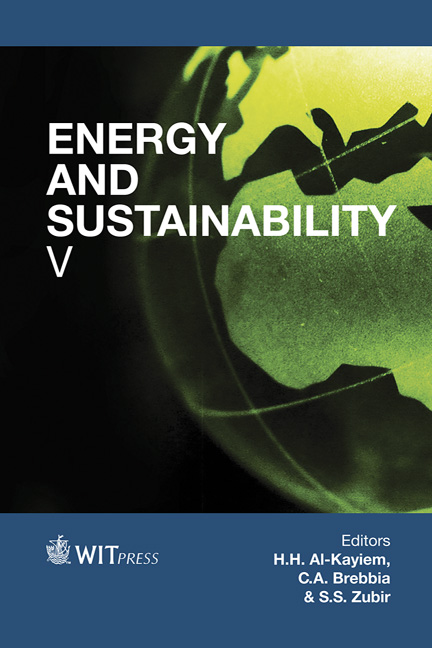Capabilities, Difficulties And Obstacles For Energy Recovery From MSW’ As A Sustainable Option For Waste Management In Iran
Price
Free (open access)
Transaction
Volume
186
Pages
10
Page Range
789 - 798
Published
2015
Size
343 kb
Paper DOI
10.2495/ESUS140701
Copyright
WIT Press
Author(s)
E. Rahimi
Abstract
Increasing concerns about unbridled fossil fuel consumption and a growing generation of municipal solid waste (MSW) in Iran and related environmental challenges require adoption of more sustainable approaches in energy and waste management. Energy recovery from waste can play an important role to achieve environmentally sustainable development that has been defined for the country as a main policy. Iran’s growing urban population generates massive amounts of MSW that mostly end up in landfills. A population of 75 million is generating 50,000 tonnes of MSW every day that mostly are buried in landfills. Detrimental emissions from landfills and many other long-lasting environmental issues have caused ever-increasing concerns about the current trend of MSW generation and methods of treatment. Despite comprehensive MSW collection, the rate of MSW separation at source and energy or material recovery has remained significantly low. This study aims to investigate capabilities, difficulties and obstacles of energy generation from MSW in a developing country, Iran. It also discusses the reasons for the low motivation to produce energy from MSW and the most suitable method of energy generation from MSW considering current MSW characteristics and the country’s climate.
Keywords
energy generation, municipal solid waste, landfill, sustainable energy





